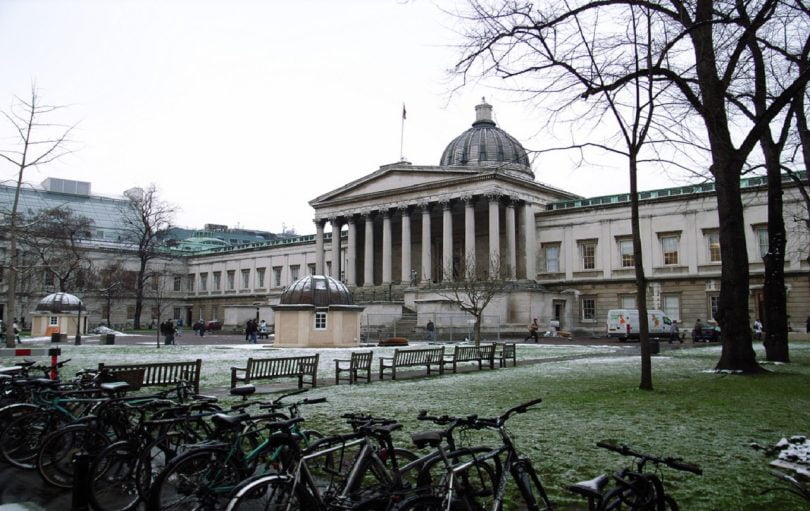Student media hasn’t had it easy recently. From action against ‘The Badger’ student paper at the University of Sussex in September, to recent concerns about changes to the Freedom of Information Act with the potential exemptions of universities from the Act possibly compromising the ability for stories to be told. The publications at the epicentre of university life, and a training ground to so many, are finding their work is being challenged, either from student unions, or the universities themselves.
The case surrounding Rebecca Pinnington, the President of Pi Media, the student media hub of University College London, is no different. Earlier this month, Pinnington wrote an article on Pi Media’s site about documents showing that UCL would make a surplus over university-owned accommodations.
The documents were made available courtesy of a Microsoft Outlook Calendar programme maintained by a UCL executive. The timing of the article was significant as ongoing strikes over rent and accommodations at UCL had been ongoing.
‘Hold the university to account’
The article got the attention of UCL administration, notably Rex Knight, its vice provost. Knight demanded that Pinnington sign an agreement handing over the files, and if she published the information, she could face expulsion.
Pinnington signed the agreement, and then went public despite the concerns of intimidation by the university. In an interview with The Independent, Pinnington said student media had a role in holding the university to account, as well as to ensure freedom of speech and expression.
“I think the role of student media is to hold the university to account and question things,” Pinnington said. “I just wanted to report facts and that was opposed. Universities should be about the free exchange of ideas and yet we’re not allowed to publish what was freely available.”
UCL joins the list of universities prepared to intimidate student journalists… https://t.co/GQQjpkGVUZ
— Paul Bradshaw (@paulbradshaw) March 13, 2016
Education: The foundation of journalism
Pinnington’s decision to publish the article was not a malicious one – it was one that embodied the principles of journalism and the Fourth Estate. Pinnington wanted to inform, educate and enlighten, and these documents were of the public interest so students could know what is going on with money they are investing for their education.
That was all she wanted to do, a mission that she not only has, but is shared in the student media outlets up and down the UK, and shares a goal of the foundation of universities – to educate, inform and enlighten.
“No student journalist should be threatened for doing their job” https://t.co/PjhljpOYv7 Please support and share. @SPAJournalism
— Sian Elvin (@SianElvin) March 14, 2016
Education is at the foundation of all good journalism, no matter the audience. The content that is made may not be heard on Radio 4 or seen on the front page of the next day’s Guardian or FT, but people like Pinnington, working to advance their crafts and to make lives better through the acts of journalism, should be afforded the same respect and courtesy. UCL officials should recognise the role of journalism and allow those who want to pursue it to practice it without the need to resort to intimidation or bullying.
In an interview earlier this month for this publication, Bethan McGrath, a Deputy Editor of The Boar, the student newspaper at the University of Warwick, said these articles had their place among trivial articles in student newspapers, because students deserve to know about these stories.
Rebecca Pinnington and I have the same goals when it comes down to it – to inform, educate and enlighten. These values are instilled in good journalism, and can help make the world a better place, with the help of the knowledge gained through the ubiquitous value of the written word.
It’s why I back her and the work she does – for her sake, and for journalism’s too.
What do you think about UCL’s actions, as well as the role of student media? Have your say in the comments section below.









